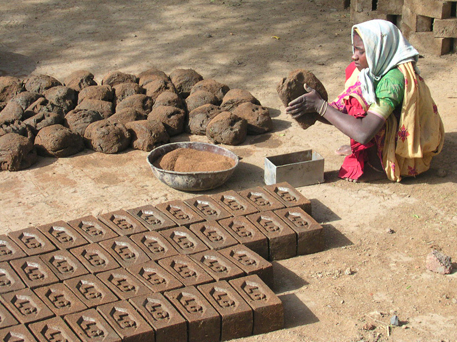|
From MDGs to SDGs – Creating Green Jobs
E ven as India continues to record impressive economic growth, extreme poverty and inequality remain major challenges. According to the National Sample Survey Organisation, in the year 2000, the average income of the richest people in urban India was 12 times that of the poorest people. This gap increased to 15 times in 2012. The underlying cause of this is the failure of the current economic development model to integrate all segments of the society in the growth story. This model fails to provide jobs and benefits to the poor further exacerbating the persisting disparities. The distribution of India’s GDP growth rate is structurally disequalising1 and destablising.
Evidence across time and space, especially from Nordic countries has illustrated that reduced poverty and even distribution of income leads to a sustainable and strong economy. On the contrary, high levels of inequality have resulted in volatile economic performance and social instability in countries like the United States, Greece and Spain over the last few years.2 Therefore, there is an urgent need to put in place systems attacking poverty and inequality. Creation of green and inclusive decent jobs for all is one way to facilitate such development. A supply of jobs enhances the productive capabilities of people laying the foundation of prosperity and social cohesion.3 Development policy in the last decade, guided by the Millennium Development Goals (MDGs), has failed to create inclusive economic growth and jobs. Chang (2010) argues that MDGs lacked a strategy to promote necessary transformations that nurture productive capabilities. He describes the MDGs vision as one of ‘development without development’.4 Moreover, donor countries have expressed that the MDGs give all attention to social outcomes, ignoring economic transformations. As a result, Official Development Assistance (ODA) is becoming concentrated on health and education with the economic sectors gradually getting neglected. For example, the share of the Official Development Assistance (ODA) commitments to the production sectors in the least developed countries fell from 48% in the period 1992-1994 to 25% in 2006.5 Moreover, the overemphasis on meeting social outcome targets has led to national governments splurging on dole out schemes that have increased inflation and raised deficits. |
|
Critical Reforms to Facilitate Green Job Creation In India • Raise agriculture productivity with a focus on land reforms and natural resource regeneration • Accelerate creation of non-farm green job opportunities • Increase flexibility and dynamism of labour markets • Build skills and develop capacities of the poor and the unemployed • Encourage innovative education programmes that embody vocational skills development and entrepreneurship • Incentivise the micro, small and medium enterprise sectors |
|
This poor economic strategy of the last decade coupled with the resource pressures of today is likely to trigger wars, political and social unrest within and across borders. For a country like India which is adding 12 million people to the workforce each year, an inclusive and green growth development strategy is a must as we advance into the post 2015 framework.6 A focus on decent and green jobs is critical in the short term to curb the dramatic effects of a prolonged job crisis and in the long term for making economic growth more sustainable, inclusive and equitable.7 The post 2015 framework must create enabling conditions for this and set out an explicit goal on productive green jobs unlike the insufficient emphasis placed on this subject in the MDGs. This goal must be simple with agreed parameters that can help national level stakeholders define targets suited to the needs of their countries.8 This future framework must also place emphasis on ‘means’ enabling the achievement of desired social and economic outcomes rather than the ‘ends’ themselves. Therefore, support for social development must be complemented by measures that enhance employment in order to promote sustainable human development. q Chitrangna Dewan 1 Mishra, P. (2013) Which India Matters?2 ODI (2013) Recasting MDG 8: Global Policies for Inclusive Growth 3 International Labour Office (n.d) Jobs and Livelihoods at the heart of the Post-2015 Development Agenda 4 ODI (2012) Inclusive Growth and a Post 2015 Framework 5 ODI (2013) Recasting MDG 8: Global Policies for Inclusive Growth 6 Mishra, P. (2013) Which India Matters? 7 International Labour Office (n.d) Jobs and Livelihoods at the heart of the Post-2015 Development Agenda 8 UN System Task Team on the Post 2015 Development Agenda (2012) |